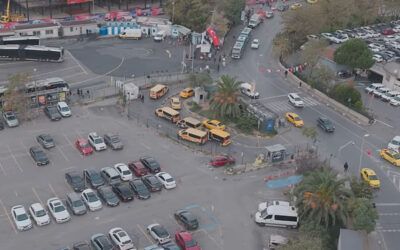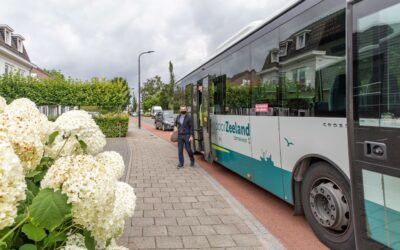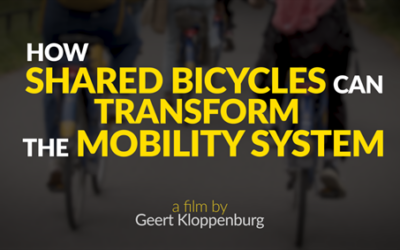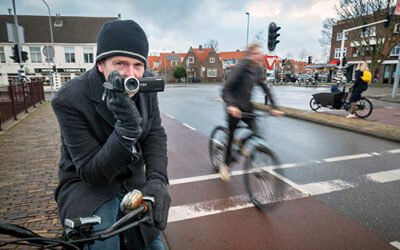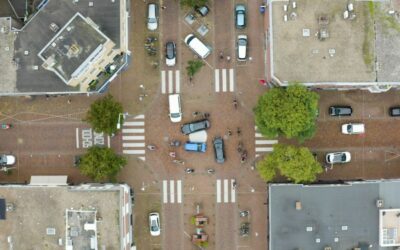Focus on transformation
With a diverse range of clients and collaborative partners, solutions for radically different mobility are being explored, conceived, developed, and implemented. From cooperative collaboration to shared mobility and the importance of behavioral change
Current Projects
Developing a supply-driven transportation system for business parks and their employees, structured as a cooperative.
A new cooperative transportation system involving citizens and businesses represents an innovative model. It is designed to collaboratively organize transportation services for both individual residents and business entities within specific regions or communities. The goal of this system is to enhance transportation efficiency, sustainability, and affordability by fostering cooperation among various stakeholders. A Cooperative established in 2024. Geert Kloppenburg is currently assisting different regions in the Netherlands in setting up similar cooperatives.
Evaluating the integration of government transport subsidies to enhance public transit’s effectiveness, accessibility, and affordability in specific areas
This project addresses key challenges. Public transportation is currently burdened by rising costs and dwindling passenger numbers, leading to reduced service levels and underused buses. Although the shared mobility sector is expanding, it continues to face significant developmental hurdles. Another major challenge is the fragmented approach of government subsidies for transport across different target groups, such as those dependent on the Social Support Act (WMO), school pupils, and holders of the OV (public transportation) chip card for students. This ongoing evaluation by Geert Kloppenburg aims to implement such solutions across five regions.”
Social housing and sharing mobility in cities how to implement?
When we think of shared mobility, services like Uber, Lime, and the OV-fiets often come to mind—innovative yet costly options that remain inaccessible for many. Meanwhile, billions are already being spent to keep public transport affordable. This raises a crucial question: What if we could integrate the principles of universally affordable public transport with shared mobility? Such a combination could unveil groundbreaking solutions, including public transportation tailored to social housing, a national shared bike system, or corporate sharing systems.
Exploring these possibilities, five documentary films and two books by Geert Kloppenburg thoroughly examine the potential of shared bikes and cars in various scenarios and with different stakeholders.
Road safety in residential areas in various EU cities
Through comprehensive fieldwork, data analysis, and policy research, the current state of road safety in residential areas of various EU cities has been mapped, focusing on issues caused by delivery vans, trucks, and cars. The annual cost related to road safety in the Netherlands reaches approximately 33 billion euros, with nearly 50% of these expenses occurring within urban areas. Assistance has been provided to numerous cities to enhance road safety at both the system and design levels.
Read the essay ‘Design road unsafety, how?’ via this link –>
Integrating public transport with taxi services to establish a new, on-demand, flexible public transportation system
In many EU cities, taxis are not integrated into the public transport system, prompting the question: why, especially when there are so many empty seats across various transport systems? Could the use of smaller vehicles, like those in Istanbul where 20% of public transport is provided by unsubsidized mini-vans and taxis, reduce this inefficiency? What costs do travelers incur, and how could this model benefit other European cities? After eight months of data and field research, a film and an essay were produced as part of an open-source research project in cooperation with EIT Urban Mobility, which is co-funded by the European Union. There are intriguing lessons to be learned from the Turkish metropolis.
How to design the city of the future? (workshop with film)
Many future scenarios rely solely on reports and models from a single area of expertise. To expand this perspective, a film was created featuring Alexander van Altena, advisor and former Director of OV at Min I en W and former Strategy Director at Prorail. This film sparks a discussion on the broad issues that must be addressed when designing cities of the future. It is now available online and has been utilized in 25 workshops for senior management. For more information about this workshop, send an email to geert@geertkloppenburg.nl with the subject ‘Workshop How to Design the City of the Future?
Lectures
Geert Kloppenburg has delivered over 250 lectures to companies including Unilever, Eneco, and Nike, focusing on changing mobility for their employees. He has been a guest speaker at prominent events such as the World Metro Congress in Bilbao, Velo-city in Dublin, World Rail Day in Vienna, and Fast Forward Mobility. His main topics include transformative entrepreneurship and organizations, developing innovative concepts, initiating behavioral change, and improving the accessibility of urban and rural areas. He effectively utilizes films and podcasts to engage and initiate discussions with his audience.

